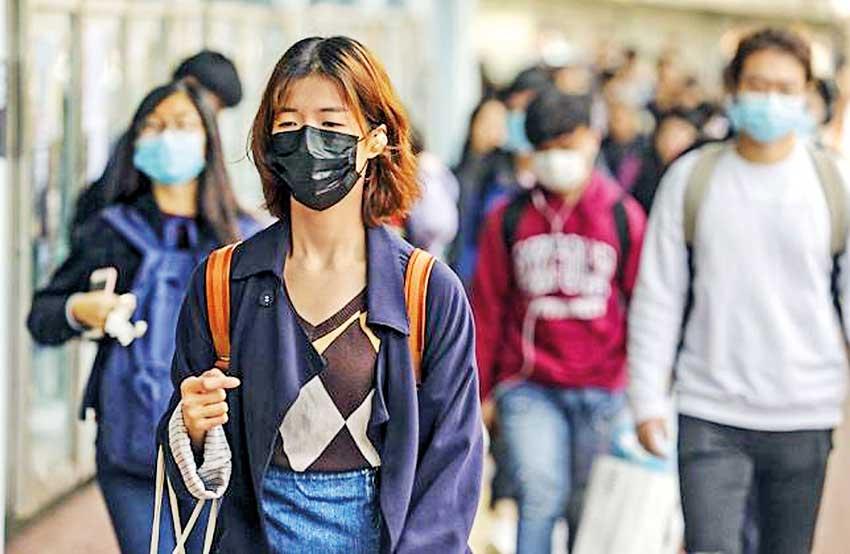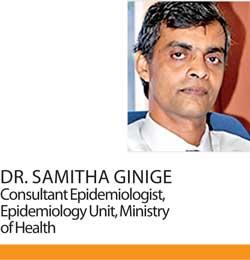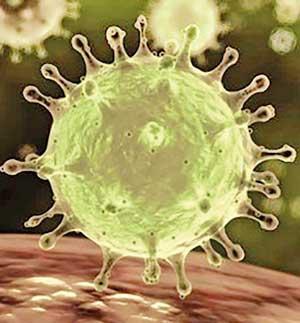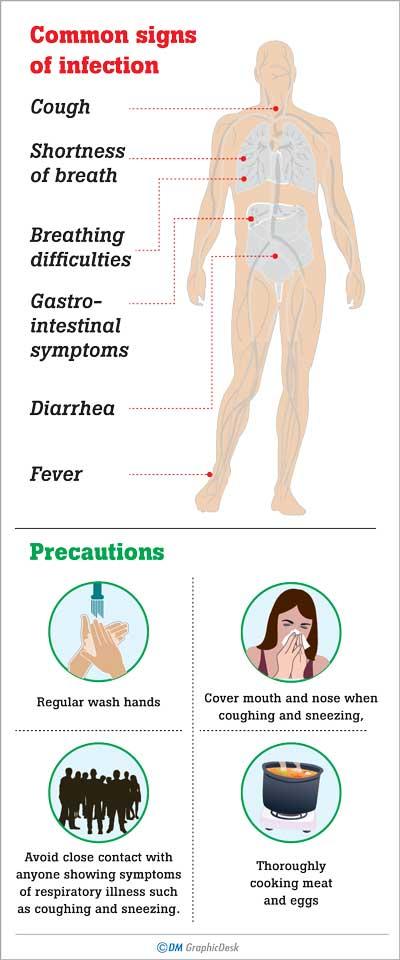24 Jan 2020 - {{hitsCtrl.values.hits}}

 As the seasonal influenza outbreak was slowly subsiding, news of a new virus made its rounds in early January. Known as the Wuhan pneumonia, as the first case was reported from China, the World Health Organisation has informed the Health Ministry in Colombo and other countries which are frequently visited by Chinese tourists and nationals to be cautious of the virus. The virus is classified as a coronoavirus and has affected over 440 people in China while taking the life of Nine patients.
As the seasonal influenza outbreak was slowly subsiding, news of a new virus made its rounds in early January. Known as the Wuhan pneumonia, as the first case was reported from China, the World Health Organisation has informed the Health Ministry in Colombo and other countries which are frequently visited by Chinese tourists and nationals to be cautious of the virus. The virus is classified as a coronoavirus and has affected over 440 people in China while taking the life of Nine patients.
Hence, the Daily Mirror Health Capsule spoke to Dr. Samitha Ginige, Consultant Epidemiologist, Epidemiology Unit, Ministry of Health, Sri Lanka who shed more light on the virus and the
current condition.
What is a coronavirus?
According to the World Health Organisation (WHO), coronaviruses (CoV) are a large family of viruses that causes illnesses ranging from the common cold to more severe diseases such as Middle East Respiratory Syndrome (MERS-CoV) and Severe Acute Respiratory Syndrome (SARS-CoV). A novel coronavirus is a new strain that has not been previously identified in humans.
Coronaviruses are zoonotic, meaning they are transmitted between animals and people.
Wuhan pneumonia
Last December, the WHO was informed of a cluster of cases of pneumonia of unknown cause detected in Wuhan City, Hubei Province in China. According to media reports, the concerned market in Wuhan was closed on 1 January 2020 for environmental sanitation and disinfection. Chinese public health officials have reported that they remain focused on continued contact tracing, conducting environmental assessments at the wholesale market and investigations to identify the pathogen causing the outbreak. “We didn’t have a single case reported from Sri Lanka,” said Dr. Ginige. “It is only limited to Wuhan City in China. According to the latest report by the WHO, the last case was reported on January 3. So far, over 440 cases have been reported from China.”
Symptoms
Dr. Ginige said that symptoms are more or less the same as that of the common flu. “These include fever, cough and other clinical symptoms. If complicated the symptoms would lead up to pneumonia,” Dr. Ginige said.
The WHO further stated that common signs of the infection include respiratory symptoms, fever, cough, shortness of breath and breathing difficulties. In more severe cases, the infection can cause pneumonia, severe acute respiratory syndrome, kidney failure and even death.
Standard recommendations to prevent infection spread include regular hand washing, covering mouth and nose when coughing and sneezing and thoroughly cooking meat and eggs. Avoid close contact with anyone showing symptoms of respiratory illness such as coughing and sneezing.
On alert
He further said that they are closely monitoring people coming from China and other countries. “The airport officials have been alerted and if there’s anybody coming down with these symptoms they need to get themselves checked at the airport. Right now it’s our responsibility to monitor any cases coming into the country,” he added.
WHO advice
Based on information provided by national authorities, WHO’s recommendations on public health measures and surveillance of influenza and severe acute respiratory infections
still apply. WHO does not recommend any specific measures for travellers. In case of symptoms suggestive of respiratory illness either during or after travel, travellers are encouraged to seek medical attention and share travel history with their healthcare provider.
WHO advises against the application of any travel or trade restrictions on China based on the current information available on this event.

21 Dec 2024 5 hours ago
21 Dec 2024 21 Dec 2024
21 Dec 2024 21 Dec 2024
21 Dec 2024 21 Dec 2024
21 Dec 2024 21 Dec 2024